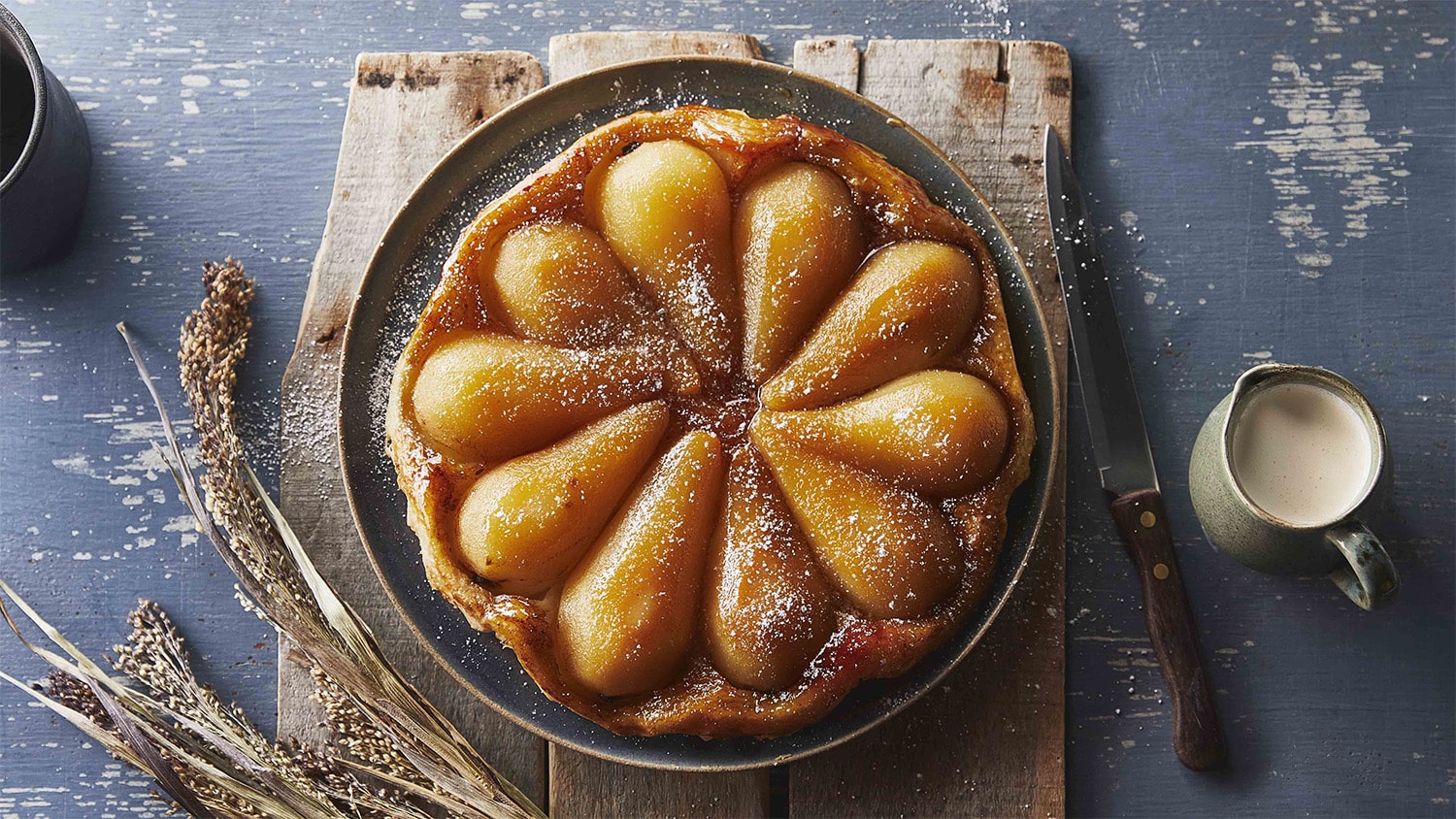
28 interesting facts about Tarte Tatin
- 👁️ 310
The Tarte Tatin is more than just a dessert; it’s a delicious mistake turned into a culinary masterpiece. This upside-down apple tart, originating from France, carries with it a whimsical story of accidental invention, dating back to the late 19th century. Its creation is attributed to the Tatin sisters, who ran the Hotel Tatin in Lamotte-Beuvron, France. The Tarte Tatin is not only a testament to the serendipity in cooking but also a staple of French cuisine that has inspired bakers and chefs worldwide. With its caramelized apples and flaky pastry, it has become a beloved dessert that transcends language and culture. Here are 28 interesting and informative facts about this iconic tart.
- The Tarte Tatin was accidentally created by Stéphanie Tatin when she was trying to make a traditional apple pie.
- It is traditionally made with buttery pastry dough, apples, sugar, and sometimes spices like cinnamon or vanilla.
- The apples in a Tarte Tatin are caramelized in butter and sugar before being covered with pastry.
- This dessert is baked upside down in a skillet or pan and then inverted onto a plate before serving.
- The Tarte Tatin is best served warm, often with a dollop of crème fraîche or vanilla ice cream.
- Its origin dates back to the 1880s in the small French town of Lamotte-Beuvron, located in the Loire Valley.
- The Hotel Tatin, run by the Tatin sisters, is credited with the tart’s invention and became famous for it.
- There are various stories about how the tart was created, but the most popular tale involves Stéphanie Tatin overcooking the apples in sugar and butter and trying to salvage the dessert by adding the pastry on top.
- The original recipe for Tarte Tatin is said to have been a closely guarded secret until it was shared with the public.
- Unlike traditional apple tarts, the apples in a Tarte Tatin are cooked until they are almost candied, creating a deep caramel flavor.
- The pastry used for the tart is typically puff pastry or shortcrust pastry.
- Tarte Tatin can also be made with other fruits, such as pears, peaches, or quinces, but apple is the traditional choice.
- This dessert gained international fame and was celebrated in Parisian restaurants in the early 20th century.
- The exact type of apple used can vary, but firmer varieties that hold their shape during cooking are preferred.
- The Tarte Tatin was reportedly a favorite of King Edward VII of England.
- Julia Child, the famous American chef, helped popularize Tarte Tatin in the United States through her cookbooks and television shows.
- The process of caramelizing the sugar and butter creates a rich, glossy sauce that envelops the apples.
- Some versions of the story suggest that the tart was originally made with two crusts, similar to a pie, but this method was later abandoned.
- The Tarte Tatin has been featured in numerous cooking competitions and television shows, highlighting its enduring popularity.
- Many chefs have created their own variations of the Tarte Tatin, experimenting with different techniques and ingredients.
- In France, the Tarte Tatin is considered a classic dessert and is found in many bistros and restaurants.
- The tart is often associated with autumn and harvest season, when apples are at their peak.
- The Tarte Tatin has inspired other upside-down cakes and tarts, showcasing the versatility of this cooking technique.
- Some culinary historians consider the Tarte Tatin a pivotal moment in the evolution of French pastry.
- The dish’s accidental origin story adds to its charm and has been romanticized in culinary literature.
- The original Tarte Tatin recipe is relatively simple, emphasizing the importance of technique and quality ingredients.
- To achieve the perfect Tarte Tatin, the caramel must be watched closely to prevent it from burning.
- Despite its humble origins, the Tarte Tatin is regarded as a gourmet dessert and a testament to French culinary ingenuity.
The Tarte Tatin stands as a delicious reminder of the beauty that can arise from culinary mishaps. Its creation, steeped in lore and serendipity, has resulted in a dessert that has charmed and satisfied palates for generations. Beyond its sumptuous taste, the Tarte Tatin embodies the spirit of creativity and resilience in the kitchen. It encourages both chefs and home cooks to embrace the unexpected, proving that sometimes, the best dishes are born from the most fortuitous of accidents.
The Tarte Tatin is more than just a dessert; it’s a delicious mistake turned into a culinary masterpiece. This upside-down apple tart, originating from France, carries with it a whimsical story of accidental invention, dating back to the late 19th century. Its creation is attributed to the Tatin sisters, who…